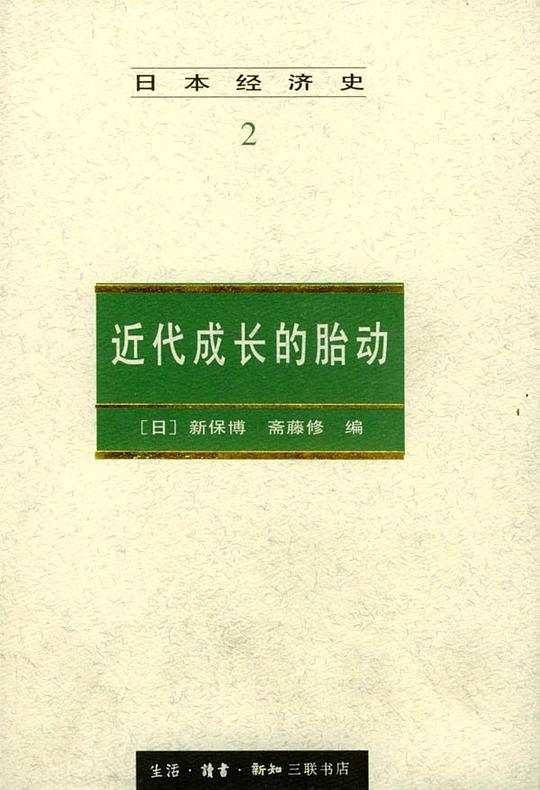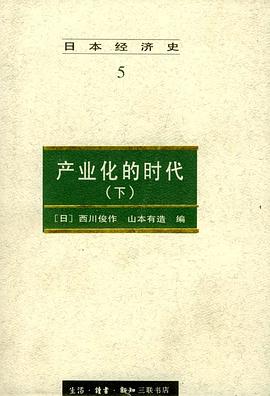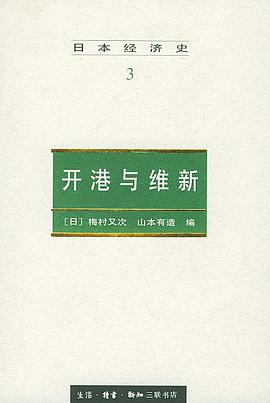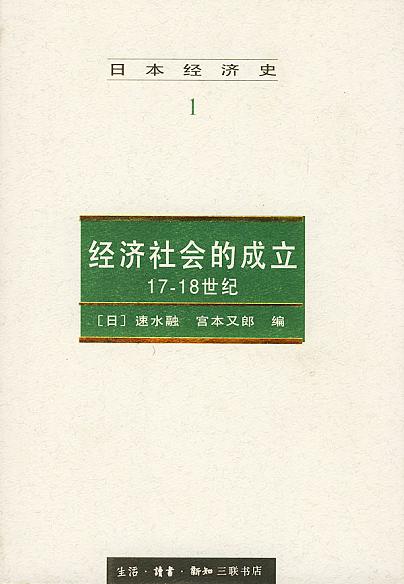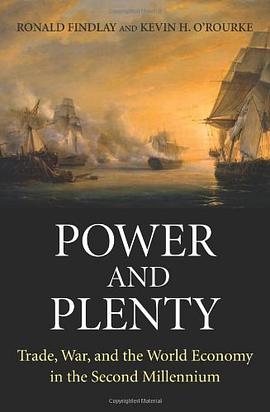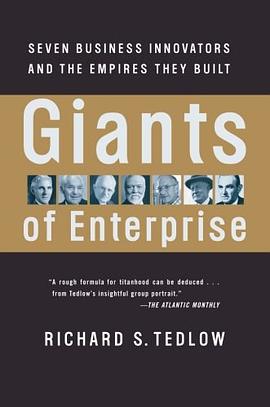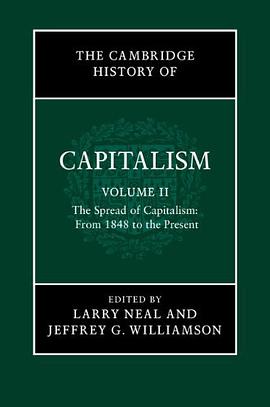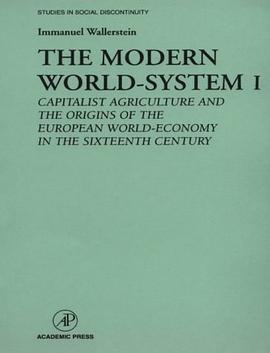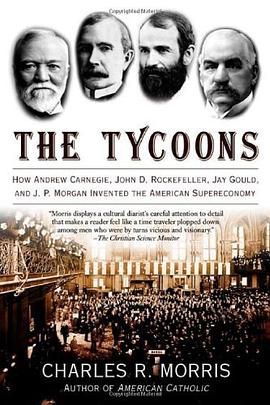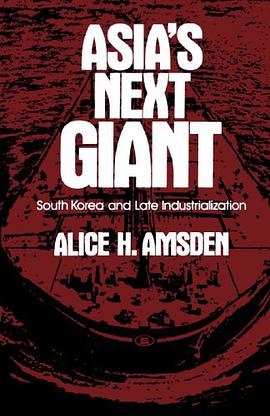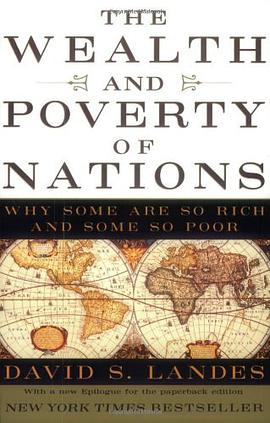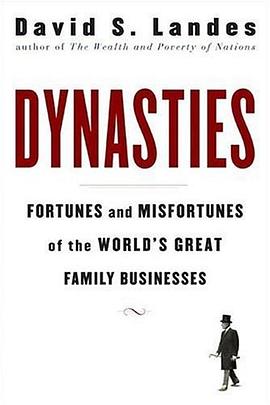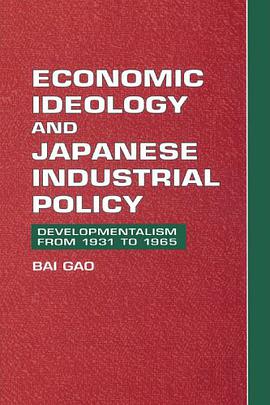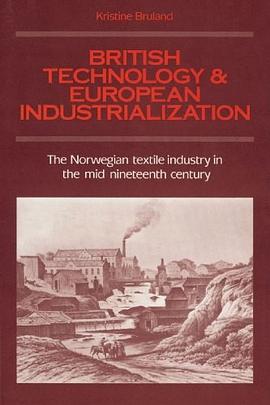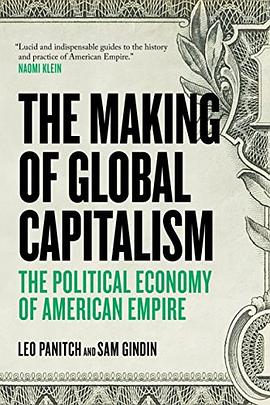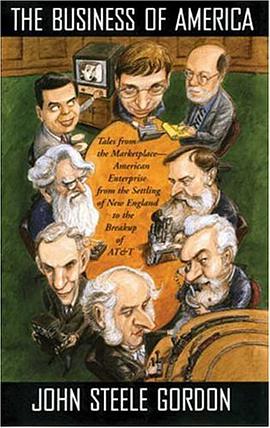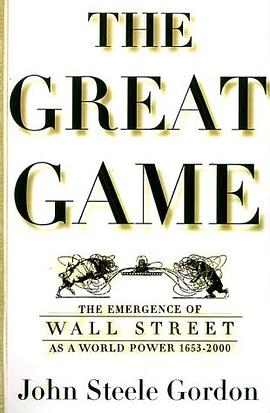經濟史
日本经济史3 豆瓣
作者:
梅村又次 山本有造
译者:
李星,杨耀录
生活·读书·新知三联书店
1998
- 6
第3卷以1859(安政6)年三港开港到1985(明治18)年松方通货紧宿结束的25年时间为研究目标。在这四分之一世纪中,日本从近世社会迈入近代社会,在打破旧制度的同时,也继承了前代的许多遗产。和其他各卷的“概述”相比略有不同。本卷“概述”采用的论述手法是,通过若干非常具体的事件集中描述开港与维新给日本社会,经济结构所带来的天翻地覆的变化,从而突现出这一时代的面貌。后面各章节的“引言”只起一个拾遗补缺的作用。关于“军备重整”“社会资本的形成”和“金融流通”3节作为“概述”能否成立,还望读者诸君去评说。
经济社会的成立:17-18世纪 豆瓣
経済社会の成立:17‐18世紀
作者:
[日] 速水融
/
宫本又郎 编
译者:
厉以平
/
连湘
生活·读书·新知三联书店
1997
- 11
本卷以17-18世纪为中心,考察了日本经济社会的形成过程以及形成后的各方面的状况。根据16世纪日本国内旧的统治机理既已瓦解崩溃,取而代之的新机理又尚未发现,而在国际上东亚地域已变成前所未有的各种势力的活动舞台这一事实,把这个世纪看作是一个“危机”的时代,并试图阐明新体制寻求摆脱危机直至确立的过程,还记述了在这种新的机理下,兵农分离,城下町建设,参观交替等制度如何刺激经济,使以往仅限于国家一部分的“经济社会化”一举在全国推广。关于江户时期的经济发展则利用获得的数量,数据勾画出大致的轮廊,以人口,耕地面积,产量,村落数,物价等为变量,揭示出变量间的关系所内含的变化趋势。
宋代经济史(全二册) 豆瓣
作者:
漆侠
中华书局
2009
- 9
科学文化普及等方面的优秀著作。这些著作,对我国百余年来的政治、经济、文化和社会的发展产生过重大积极的影响,至今仍具有重要价值,是中国读者必读、必备的经典性、工具性名著。大凡名著,均是每一时代震撼智慧的学论、启迪民智的典籍、打动心灵的作品,是时代和民族文化的瑰宝,均应功在当时、利在千秋、传之久远。“中国文库”收集百余年来的名著分类出版,便是以新世纪的历史视野和现实视角,对20世纪出版业绩的宏观回顾,对未来出版事业的积极开拓,为中国先进文化的建设,为实现中华民族的伟大复兴做出贡献。
大凡名著,总是生命不老,且历久弥新、常温常新的好书。中国人有“万卷藏书宜子弟”的优良传统,更有当前建设学习型社会的时代要求,中华大地读书热潮空前高涨。“中国文库”选辑名著奉献广大读者,便是以新世纪出版人的社会责任心和历史使命感,帮助更多读者坐拥百城,与睿智的专家学者对话,以此获得丰富学养,实现人的全面发展。
大凡名著,总是生命不老,且历久弥新、常温常新的好书。中国人有“万卷藏书宜子弟”的优良传统,更有当前建设学习型社会的时代要求,中华大地读书热潮空前高涨。“中国文库”选辑名著奉献广大读者,便是以新世纪出版人的社会责任心和历史使命感,帮助更多读者坐拥百城,与睿智的专家学者对话,以此获得丰富学养,实现人的全面发展。
Power and Plenty 豆瓣
作者:
Ronald Findlay
/
Kevin H. O'Rourke
Princeton University Press
2009
- 8
International trade has shaped the modern world, yet until now no single book has been available for both economists and general readers that traces the history of the international economy from its earliest beginnings to the present day. "Power and Plenty" fills this gap, providing the first full account of world trade and development over the course of the last millennium. Ronald Findlay and Kevin O'Rourke examine the successive waves of globalization and 'deglobalization' that have occurred during the past thousand years, looking closely at the technological and political causes behind these long-term trends. They show how the expansion and contraction of the world economy has been directly tied to the two-way interplay of trade and geopolitics, and how war and peace have been critical determinants of international trade over the very long run. The story they tell is sweeping in scope, one that links the emergence of the Western economies with economic and political developments throughout Eurasia centuries ago. Drawing extensively upon empirical evidence and informing their systematic analysis with insights from contemporary economic theory, Findlay and O'Rourke demonstrate the close interrelationships of trade and warfare, the mutual interdependence of the world's different regions, and the crucial role these factors have played in explaining modern economic growth. "Power and Plenty" is a must-read for anyone seeking to understand the origins of today's international economy, the forces that continue to shape it, and the economic and political challenges confronting policymakers in the twenty-first century.
Deutsche Wirtschaftsgeschichte. Von 1945 bis zur Gegenwart 豆瓣
作者:
Werner Abelshauser
Beck
2011
- 8
Strategy and Structure 豆瓣
作者:
Alfred D. Chandler
The MIT Press
1969
- 8
This book shows how the seventy largest corporations in America have dealt with a single economic problem: the effective administration of an expanding business. The author summarizes the history of the expansion of the nation's largest industries during the past hundred years and then examines in depth the modern decentralized corporate structure as it was developed independently by four companies--du Pont, General Motors, Standard Oil (New Jersey), and Sears, Roebuck. This 1990 reprint includes a new introduction by the author.
Giants of Enterprise 豆瓣
作者:
Richard S. Tedlow
HarperBusiness
2003
- 7
Masterfully combining his understanding of business and American history, Harvard Business School professor Richard S.Tedlow illuminates the professional and personal lives of these nineteenth- and twentieth- century titans, men with penetrating insight whose need to fulfill their destiny outweighed their fear of failure.
The Cambridge History of Capitalism 豆瓣
作者:
Larry Neal
/
Jeffrey G. Williamson (Editor)
Cambridge University Press
2014
- 3
The second volume of The Cambridge History of Capitalism provides an authoritative reference on the spread and impact of capitalism across the world, and the varieties of responses to it. Employing a wide geographical coverage and strong comparative outlook, a team of leading scholars explore the global consequences that capitalism has had for industry, agriculture and trade, along with the reactions by governments, firms and markets. The authors consider how World War I halted the initial spread of capitalism, but global capitalism arose again by the close of the twentieth century. They explore how the responses of labor movements, compounded by the reactions by political regimes, whether defensive or proactive, led to diverse military and welfare consequences. Beneficial results eventually emerged, but the rise and spread of capitalism has not been easy or smooth. This definitive volume will have widespread appeal amongst historians, economists and political scientists.
The Modern World-System I 豆瓣
作者:
Immanuel Wallerstein
Academic Press
1980
The Tycoons 豆瓣
作者:
Charles R. Morris
Holt Paperbacks
2006
- 10
The modem American economy was the creation of four men: Andrew Camegie, John D. Rockefeller, Jay Gould, and J. P. Morgan. They were the giants of the Gilded Age, a moment of riotous growth that established America as the richest, most inventive, and most productive country on the planet. Acclaimed author Charles R. Morris vividly brings the men and their times to life. The ruthlessly competitive Camegie, the imperial Rockefeller, and the provocateur Gould were obsessed with progress, experiment, and speed. They were balanced by Morgan, the gentleman businessman, who fought, instead, for a global trust in American business. Through their antagonism and their verve, they built an industrial behemoth - and a country of middle-class consumers. "The Tycoons" tells the incredible story of how these four determined men wrenched the economy into the modem age, inventing a nation of full economic participation that could not have been imagined only a few decades earlier.
Asia's Next Giant 豆瓣
作者:
Alice H. Amsden
Oxford University Press
1992
- 4
While much attention has been focused on Japan's meteoric rise as an economic power, South Korea has been quietly emerging as the next industrial giant to penetrate the world market. South Korea is one of a series of countries (ranging from Taiwan, India, Brazil, and Turkey, to Mexico, and including Japan) to have succeeded through borrowing foreign technology rather than by generating new products or processes. Describing such countries as 'late-industrializers,' Amsden demonstrates why South Korea has become the most successful of this group.
The Wealth and Poverty of Nations Goodreads 豆瓣
作者:
David S. Landes
W W Norton & Co Ltd
1999
- 5
在线阅读本书
The Wealth and Poverty of Nations is David S. Landes's acclaimed, best-selling exploration of one of the most contentious and hotly debated questions of our time: Why do some nations achieve economic success while others remain mired in poverty? The answer, as Landes definitively illustrates, is a complex interplay of cultural mores and historical circumstance. Rich with anecdotal evidence, piercing analysis, and a truly astonishing range of erudition, The Wealth and Poverty of Nations is a "picture of enormous sweep and brilliant insight" (Kenneth Arrow) as well as one of the most audaciously ambitious works of history in decades.
The Wealth and Poverty of Nations is David S. Landes's acclaimed, best-selling exploration of one of the most contentious and hotly debated questions of our time: Why do some nations achieve economic success while others remain mired in poverty? The answer, as Landes definitively illustrates, is a complex interplay of cultural mores and historical circumstance. Rich with anecdotal evidence, piercing analysis, and a truly astonishing range of erudition, The Wealth and Poverty of Nations is a "picture of enormous sweep and brilliant insight" (Kenneth Arrow) as well as one of the most audaciously ambitious works of history in decades.
Dynasties 豆瓣
作者:
David S. Landes
Viking Adult
2006
- 9
A rich and lively survey of the great families who rule industry by the acclaimed author of The Wealth and Poverty of Nations
Through perseverance, solid ingenuity, and unwavering determination, family-run companies— dynasties—have dominated wealth and business throughout the last two centuries. One third of Fortune 500 firms are family owned and, in most cases, the ideal of the family business is one synonymous with continuity, watchful leadership, and dedication to success. But what happens when bad behavior, extravagance, and laziness—all very real enemies of industry—are allowed to proliferate?
In Dynasties, bestselling author and historian David S. Landes scrutinizes the powerful family businesses that rule both the financial and industrial sectors across Europe, Japan, and America to determine what factors can cause a dynasty to flourish or fail. Focusing on three areas—banking, automobiles, and raw materials—his cast of characters speaks to the power of the family enterprise: Ford, Rothschild, Morgan, Guggenheim, Rockefeller, and Toyoda are but a few whose histories contain all the drama and passion expected when exorbitant money, power, and kinship intersect. Drawing on his immense knowledge of economic history, Landes offers a new reading of the dynastic business plan of the last two centuries—with surprising recommendations for the coming one.
Through perseverance, solid ingenuity, and unwavering determination, family-run companies— dynasties—have dominated wealth and business throughout the last two centuries. One third of Fortune 500 firms are family owned and, in most cases, the ideal of the family business is one synonymous with continuity, watchful leadership, and dedication to success. But what happens when bad behavior, extravagance, and laziness—all very real enemies of industry—are allowed to proliferate?
In Dynasties, bestselling author and historian David S. Landes scrutinizes the powerful family businesses that rule both the financial and industrial sectors across Europe, Japan, and America to determine what factors can cause a dynasty to flourish or fail. Focusing on three areas—banking, automobiles, and raw materials—his cast of characters speaks to the power of the family enterprise: Ford, Rothschild, Morgan, Guggenheim, Rockefeller, and Toyoda are but a few whose histories contain all the drama and passion expected when exorbitant money, power, and kinship intersect. Drawing on his immense knowledge of economic history, Landes offers a new reading of the dynastic business plan of the last two centuries—with surprising recommendations for the coming one.
Economic Ideology and Japanese Industrial Policy 豆瓣
作者:
Bai Gao
Cambridge University Press
2002
- 5
In this major addition to the literature on modern Japanese development, Bai Gao emphasizes the role of ideas and ideology in industrial policy, and explores how the Japanese themselves perceived the issue of economic development. During the Great Depression and World War II, the ideology of developmentalism - characterized by a nationalistic perspective, a production orientation, and a strategic view of the economy including restraint of market competition and rejection of the profit principle - emerged and strongly influenced policy innovation in Japan and institutional reforms in its economy. Liberal capitalism in the postwar era demilitarized the Japanese economy, and forced developmentalism to adapt to democratic political institutions and the free trade regime. Nevertheless, the economic principles that served to combat the Great Depression and sustain total war during the period 1931-45 survived. Transformed from a military to a trade strategy, developmentalism became the basic framework of Japanese industrial policy, facilitating economic growth and the development of modern economic institutions.
British Technology and European Industrialization 豆瓣
作者:
Bruland, Kristine
2003
- 11
How did small European economies acquire the technologies and skills needed to industrialize in the nineteenth century? In this important contribution to a long-standing debate, Kristine Bruland looks at the Norwegian experience to show how a technological infrastructure was created, and suggests that much of this was due to the efforts of British machine makers who from the mid 1840s vigorously sought foreign markets. Providing not only basic technical services but also skilled labour to set up and then supervise the operation of the new machinery, British textile engineering firms were able to supply a complete 'package' of services, significantly easing the initial technical problems faced by Norwegian entrepreneurs. Kristine Bruland's case-study of the Norwegian textile industry demonstrates clearly the paradox that Britain's entrepreneurial efforts in the supply of capital goods overseas were largely responsible for the creation of the technical industrial bases of many of her major foreign competitors.
The Making of Global Capitalism 豆瓣
作者:
Leo Panitch
/
Sam Gindin
Verso Books
2013
- 10
The all-encompassing embrace of world capitalism at the beginning of the twenty-first century was generally attributed to the superiority of competitive markets. Globalization had appeared to be the natural outcome of this unstoppable process. But today, with global markets roiling and increasingly reliant on state intervention to stay afloat, it has become clear that markets and states aren't straightforwardly opposing forces.
In this groundbreaking work, Leo Panitch and Sam Gindin demonstrate the intimate relationship between modern capitalism and the American state. "The Making of Global Capitalism" identifies the centrality of the social conflicts that occur within states rather than between them. These emerging fault lines hold out the possibility of new political movements that might transcend global markets.
In this groundbreaking work, Leo Panitch and Sam Gindin demonstrate the intimate relationship between modern capitalism and the American state. "The Making of Global Capitalism" identifies the centrality of the social conflicts that occur within states rather than between them. These emerging fault lines hold out the possibility of new political movements that might transcend global markets.
The Business of America 豆瓣
作者:
John Steele Gordon
Walker & Company
2001
- 5
For more than ten years, John Steele Gordon has written the widely read "The Business of America" column in "American Heritage" magazine. Marked by a combination of erudition, wit, and eloquence, Gordon's stories have celebrated the high points, and occasional low points, in the history of business in this country, from colonial days to the present. Now, the best of his mini-histories have been gathered in one volume. As much as each stands on its own, together they gain in significance as they go beyond mere business to present an intriguing lens on the broad sweep of American history. Gordon deftly connects the past with the present as he compares Frederick Philipse's successful cornering of the wampum market in 1666 with the Hunt brothers' failed attempt to corner the silver market in 1979. He looks anew at famous industrialists like Cornelius Vanderbilt and Henry Ford, and uncovers little-remembered heroes such as Oliver Evans, the founding father of the American industrial revolution, and Samuel Slater, who launched the textile industry in this country. He revels alike in the stories of philanthropist Peter Cooper, inventor Alexander Graham Bell, and the father of television syndication, Desi Arnaz. Gordon reveals how broad trends have developed (government debt and inflation, for example) and how specific words (boondoggle, pork barrel) have entered our language. He even tells the story of America's greatest cheese, Liederkranz, now lost forever. In addition to being a superb historian, John Steele Gordon is a great storyteller. Surveying almost 400 years of enterprise on this continent, "The Business of America" makes invaluable connections between eras and allows us a new appreciation of the richness of the American story.
The Great Game 豆瓣
作者:
John Steele Gordon
Scribner
1999
- 11
For more than two hundred years, fortunes have been made -- and lost -- on Wall Street by men and women playing the great game of capitalism. Many have repeated the mistakes of their forebears, and some have enjoyed similar triumphs. In this gripping and informative book, John Steele Gordon tells history lovers, armchair investors, financiers, and day traders alike everything they need to know about Wall Street's wild ride to power.
Wall Street began as the northern line of defense for a wilderness trading post, at a time when money was limited to gold, silver, and Indian wampum. Today, Wall Street is a metaphor for the global financial market, and money exists mostly on computer screens. More than three million Americans are now employed by the securities industry, and Wall Street wields the sort of power once reserved to nation states. How did an unimpressive little byway become so formidable? In this richly textured narrative history, John Steele Gordon brings to life the remarkable cast of bankers and brokers, visionaries and crooks who made it happen.
Nature gave New York one of the world's great harbors, and the Dutch founders gave the city its enduring love of making money. In pursuit of that love, New Yorkers began meeting under the trees and lampposts of Wall Street to buy and sell securities. As the country expanded westward, canal and railroad companies came to Wall Street looking for capital. Later still, manufacturers came as well, and, by the beginning of the twentieth century, the United States had the mightiest national economy in the world. No small part of that development was due to Wall Street, which, time and again, has demonstrated how Adam Smith's invisible hand turns the pursuit of economic self-interest into common wealth.
Gordon tells the fascinating stories of the key players of the Great Game, including Jacob Little, the first great Wall Street plunger; Commodore Vanderbilt, the Street's greatest tactician; Hetty Green, the "richest woman in the world," who was terrified of being poor; J. P. Morgan, the country's most important banker, who twice saved it from economic disaster when the government couldn't; Richard Whitney, the president of the New York Stock Exchange, who was a thief; and Charles E. Merrill, who brought Wall Street to Main Street and transformed both in the process. From Alexander Hamilton to Michael Milken, the history of Wall Street is a history of risk, courage, avarice, patriotism, power, genius, and even, occasionally, remarkable stupidity.
Wall Street has finally found a biographer worthy of her extraordinary story in acclaimed business historian John Steele Gordon. As more and more Americans invest their money in the stock market, The Great Game is a lively and absorbing account of how Wall Street became a crucial part of all our lives.
Wall Street began as the northern line of defense for a wilderness trading post, at a time when money was limited to gold, silver, and Indian wampum. Today, Wall Street is a metaphor for the global financial market, and money exists mostly on computer screens. More than three million Americans are now employed by the securities industry, and Wall Street wields the sort of power once reserved to nation states. How did an unimpressive little byway become so formidable? In this richly textured narrative history, John Steele Gordon brings to life the remarkable cast of bankers and brokers, visionaries and crooks who made it happen.
Nature gave New York one of the world's great harbors, and the Dutch founders gave the city its enduring love of making money. In pursuit of that love, New Yorkers began meeting under the trees and lampposts of Wall Street to buy and sell securities. As the country expanded westward, canal and railroad companies came to Wall Street looking for capital. Later still, manufacturers came as well, and, by the beginning of the twentieth century, the United States had the mightiest national economy in the world. No small part of that development was due to Wall Street, which, time and again, has demonstrated how Adam Smith's invisible hand turns the pursuit of economic self-interest into common wealth.
Gordon tells the fascinating stories of the key players of the Great Game, including Jacob Little, the first great Wall Street plunger; Commodore Vanderbilt, the Street's greatest tactician; Hetty Green, the "richest woman in the world," who was terrified of being poor; J. P. Morgan, the country's most important banker, who twice saved it from economic disaster when the government couldn't; Richard Whitney, the president of the New York Stock Exchange, who was a thief; and Charles E. Merrill, who brought Wall Street to Main Street and transformed both in the process. From Alexander Hamilton to Michael Milken, the history of Wall Street is a history of risk, courage, avarice, patriotism, power, genius, and even, occasionally, remarkable stupidity.
Wall Street has finally found a biographer worthy of her extraordinary story in acclaimed business historian John Steele Gordon. As more and more Americans invest their money in the stock market, The Great Game is a lively and absorbing account of how Wall Street became a crucial part of all our lives.
